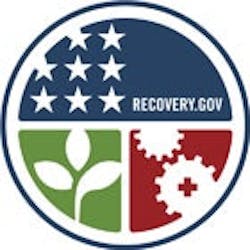EPA Awards New Round of Stimulus Funding
The U.S. Environmental Protection Agency (EPA) recently announced more stimulus funding for water projects in Wisconsin, Georgia, South Carolina, Alabama, Mississippi and New Mexico.
Wisconsin
The EPA has awarded $37,750,000 to the Wisconsin Department of Natural Resources. This new infusion of money provided by the American Recovery and Reinvestment Act of 2009 (ARRA) will help the state and local governments finance many of the overdue improvements to water projects that are essential to protecting public health and the environment across the state.
"EPA is pleased to provide more than $37 million in Recovery Act funds for much needed improvements to Wisconsin's aging drinking water infrastructure," said Bharat Mathur, acting regional administrator. "This money will protect human health and improve water quality while helping to create good jobs in the state."
The Recovery Act funds will go to the state's Drinking Water State Revolving Fund programs.
Georgia
In an effort to improve water quality and create jobs, EPA has awarded $669,600 to the Georgia Department of Natural Resources.
“With this Recovery Act funding, Georgia will pursue additional water quality planning activities that will lead to increased economic activity and new water quality protection efforts in the state,” said Stan Meiburg, EPA acting regional administrator in Atlanta. “This funding will benefit Georgia residents by promoting improved water quality while strengthening the economy through the creation of green jobs.”
South Carolina
EPA has awarded $60,053,700 to the State of South Carolina. This new infusion of money will help the state and local governments finance many of the overdue improvements to water projects that are essential to protecting public health and the environment across the state.
“This award marks a significant investment of EPA funds from the American Recovery and Reinvestment Act in South Carolina,” Meiburg said. “With this investment, we are embarking on an unprecedented effort to create green jobs and protect human health and the environment.”
The Clean Water State Revolving Fund program will receive $40,148,200. The Drinking Water State Revolving Fund program will receive $19,500,000. EPA is also awarding $405,500 in Recovery Act funds for Water Quality Management Planning (WQMP) in South Carolina.
Alabama
EPA has awarded $63,321,600 to the Alabama Department of Environmental Management. This new infusion of money will help the state and local governments finance many of the overdue improvements to water projects that are essential to protecting public health and the environment across the state.
“This award marks a significant investment of EPA funds from the American Recovery and Reinvestment Act in Alabama,” Meiburg said. “With this investment, we are embarking on an unprecedented effort to create green jobs and protect human health and the environment.”
The Recovery Act funds will go to the state's Clean Water and Drinking Water State Revolving Funds programs. The Clean Water State Revolving Fund program will receive $43,821,600. The Drinking Water State Revolving Fund program will receive $19,500,000.
Mississippi
EPA has awarded $35,308,300 to the Mississippi Department of Environmental Quality. The money will help the state and local governments finance many of the overdue improvements to wastewater projects that are essential to protecting public health and the environment across the state.
“This award marks a significant investment of EPA funds from the American Recovery and Reinvestment Act in Mississippi,” Meiburg said. “With this investment, we are embarking on an unprecedented effort to create green jobs and protect human health and the environment.” The Recovery Act funds will go to the state's Clean Water State Revolving Fund program.
New Mexico
EPA has awarded $370,950 in Clean Water Act, Section 106 funding to the New Mexico Environment Department to administer the state’s base water quality and groundwater programs. Activities for both programs will prevent, reduce and eliminate water pollution by maintaining adequate monitoring programs, setting and revising water quality standards, developing Total Maximum Daily Loads and meeting surface and groundwater program compliance and enforcement requirements.
Source: EPA
